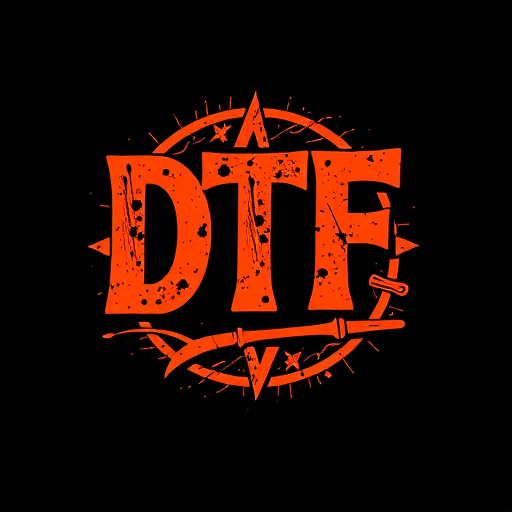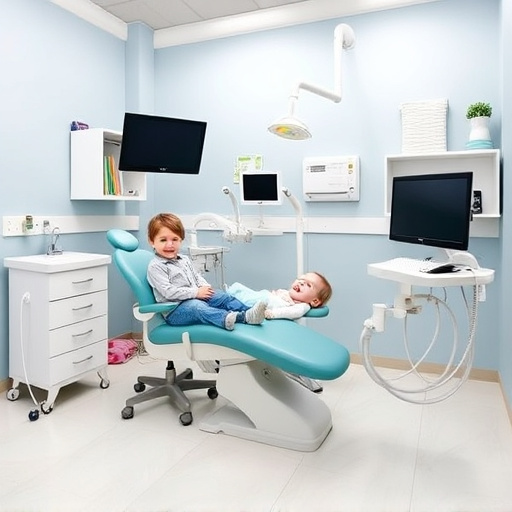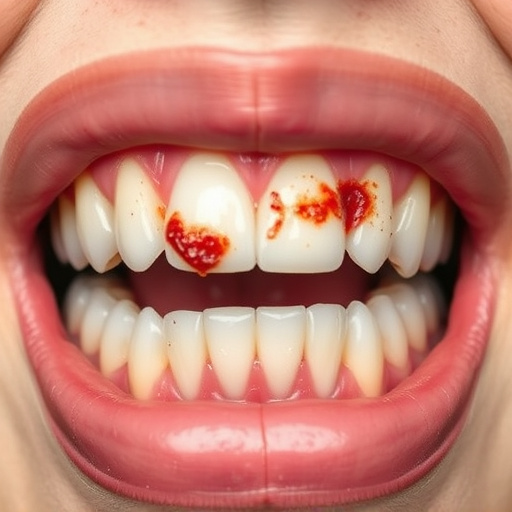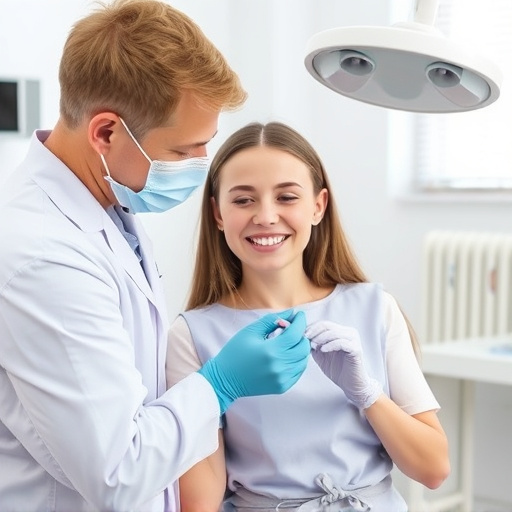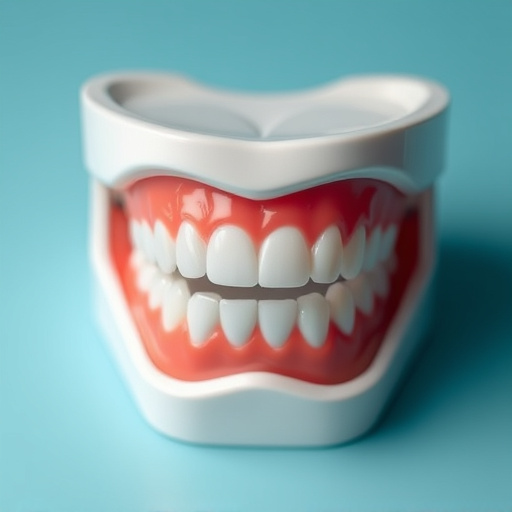Dental office technology revolutionizes infection control through advanced tools for disinfection tracking, real-time inventory management, and patient screening. Electronic health records enable early identification of high-risk patients, while automated sterilization systems ensure thorough instrument sanitation across diverse dental services. These digital solutions optimize patient flow, communication, and safety measures, crucial for mitigating infections like COVID-19 in today's digital era.
In today’s digital era, dental office technology plays a pivotal role in supporting robust infection control measures. From digital tools facilitating efficient disinfection protocols to streamlined patient screening processes that reduce risk factors, advanced sterilization techniques enabled by tech are revolutionizing dental care. By embracing these innovations, dental offices can ensure safer environments, enhance patient trust, and maintain the highest standards of hygiene.
- Digital Tools for Efficient Disinfection Protocols
- Streamlined Patient Screening: Reducing Risk Factors
- Advanced Sterilization Techniques Enabled by Tech
Digital Tools for Efficient Disinfection Protocols
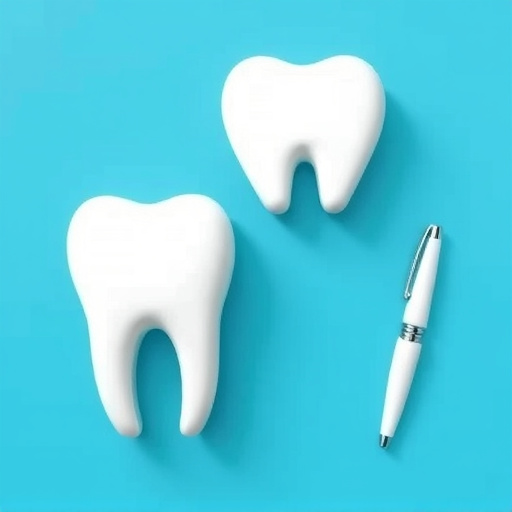
In today’s digital era, dental office technology plays a pivotal role in supporting robust infection control measures. One of the key areas where this is evident is through the implementation of efficient disinfection protocols, which are now more accessible and effective thanks to various digital tools. These range from advanced sanitization tracking software that helps monitor and record every step of the cleaning process, ensuring no area or instrument is overlooked, to smart sensors that can detect and alert staff when disinfectants have been properly applied.
This technology streamlines infection control practices by providing real-time data and insights. For instance, digital tools can help manage inventory of personal protective equipment (PPE) and disinfection supplies, automating reorders as needed. Moreover, they facilitate communication between dental professionals, ensuring everyone is on the same page regarding protocol adherence. This enhanced coordination is crucial in maintaining a clean and safe environment, especially during emergency dental care or cosmetic dentistry procedures, while also simplifying post-visit sanitation checks for routine dental cleanings.
Streamlined Patient Screening: Reducing Risk Factors
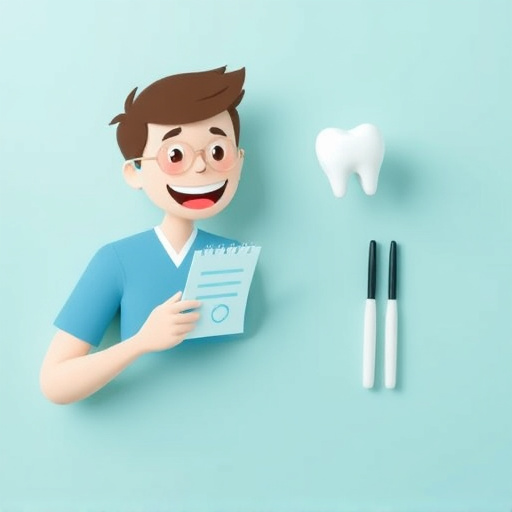
Dental office technology plays a pivotal role in enhancing infection control measures by streamlining patient screening processes. Modern digital systems enable efficient data collection and risk assessment, significantly reducing potential transmission vectors. Through electronic health records (EHRs) and advanced screening tools, dental professionals can quickly identify patients with elevated risk factors for infectious diseases. This proactive approach allows them to implement tailored precautions, such as enhanced disinfection protocols or specialized protective gear, specifically targeting high-risk cases.
By leveraging dental office technology, practices can effectively manage patient flow, schedule appointments strategically, and communicate important pre-visit instructions. This reduces wait times and minimizes crowding, creating a more controlled environment that mitigates the spread of infections like COVID-19. Moreover, digital solutions facilitate continuous monitoring and documentation of patient health status, ensuring any concerning changes are promptly addressed, and contributing to safer overall practices, especially when considering procedures in restorative dentistry or placing dental implants.
Advanced Sterilization Techniques Enabled by Tech
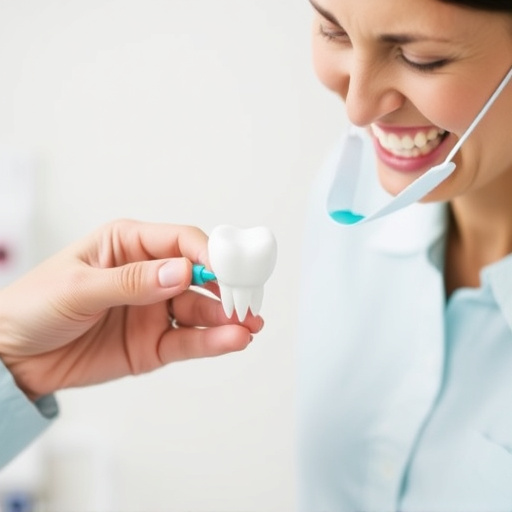
Dental office technology has revolutionized infection control by enabling advanced sterilization techniques. Modern tools and equipment, such as automated disinfection systems and plasma sterilizers, ensure that instruments used during procedures, from routine cleanings to complex tooth extractions and wisdom tooth removal, are thoroughly sanitized. These innovations complement traditional methods like high-pressure washing and chemical disinfection, creating a multi-layered defense against harmful bacteria and viruses.
Moreover, digital technologies play a crucial role in tracking and managing sterilization processes. Software solutions allow dental practitioners to monitor instrument decontamination, maintain equipment calibration, and even remotely access sterilization logs. This not only enhances efficiency but also provides peace of mind for patients visiting services ranging from general dentistry to children’s dentistry, knowing that their safety is prioritized through cutting-edge infection control measures.
Dental office technology plays a pivotal role in enhancing infection control measures, streamlining processes, and ensuring patient safety. By adopting digital tools for efficient disinfection protocols, streamlined patient screening through data-driven risk factor identification, and advanced sterilization techniques enabled by technological innovations, modern dental practices can create a robust and safe environment for both patients and staff. These advancements not only improve overall hygiene but also foster trust and peace of mind in the dental care experience.







